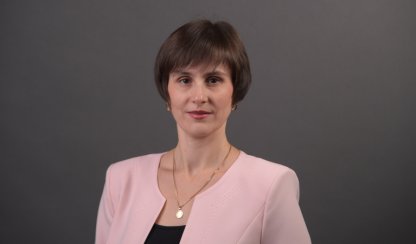Contact center of the Ukrainian Judiciary 044 207-35-46

The judicial system of Ukraine is preparing to deal with a large number of war crimes cases. While law enforcement agencies are investigating these crimes, building evidence and bringing indictments to court, judges are studying and upgrading their skills in international criminal and humanitarian law in order to ensure that national courts deal fairly and effectively with war crimes cases.
On July 27, 2022, the USAID Justice for All Program hosted an expert online discussion of the challenges faced by national courts in the consideration of war crimes cases. Program experts also presented findings and recommendations aimed at improving the legal framework, developing the capacity of judges and strengthening the judicial administration related to war crimes cases.
In her welcoming speech, Nataliia Antoniuk, Secretary of the First Judicial Chamber of the Criminal Cassation Court within the Supreme Court, stressed that the aggressor was cynically destroying the civilian population and civilian infrastructure, defiantly disregarded the norms of international humanitarian law and violated the laws and customs of war. Therefore, it is very important that justice be restored and the perpetrators held criminally liable. If the aggressor is not punished, he will be willing to repeat what he has done in the future. Every impunity breeds even greater impunity.
Nataliia Antoniuk said that today the issue of establishing an international tribunal for war criminals was extremely relevant for Ukraine, and she hopes for the support of democratic states in order for the tribunal to be implemented. At the same time, the courts of Ukraine will consider criminal proceedings against criminals of the lower, middle ranks. It is predicted that a large number of such proceedings will reach the national courts. Despite the fact that this category of cases is new, today judges are actively working and improving their knowledge on the subject of war crimes and crimes against the foundations of Ukraine's national security.
The speaker outlined a range of issues that are of priority for judges: consideration of criminal proceedings under the in absentia procedure, ensuring the protection of witnesses and victims, interrogation of minor witnesses and victims, notification of participants in the proceedings about the trial, the use of digital evidence and other matters related to the issues of war crimes.
Nataliia Antoniuk is convinced that through joint efforts it will be possible to find and define the next steps that the Ukrainian state will need to take in order to continue to ensure the rule of law and the implementation of human rights in judicial proceedings, in particular in war crimes cases.
During the event, among other things, USAID program experts spoke about the challenges associated with the current version of the provisions of the Criminal Code of Ukraine and recommended that the provisions relating to war crimes, crimes of genocide and crimes against humanity set out in the draft law On Amendments to the Criminal Code of Ukraine and the Criminal Procedure Code of Ukraine (ref. No. 7290 dated April 15, 2022) be reviewed. They also advised to adhere to uniform standards in trials in absentia and to introduce specialization of judges in war crimes cases.
In addition, the experts provided recommendations on assessing the training needs of judges to improve the handling of cases in this category. In this context, they focused on key challenges such as the need to distinguish between “general” crimes and war crimes and the scope of jurisdiction between the International Criminal Court and national courts; the need to form a systematic understanding of international humanitarian law, customary law, and the case law of international courts.
The SC judge thanked the USAID Justice for All Program for the relevant and timely assistance in organizing training sessions on the application of international criminal law. Nataliia Antoniuk expressed confidence that the acquired knowledge would help Ukrainian judges to carry out effective justice in the consideration of criminal proceedings for war crimes.